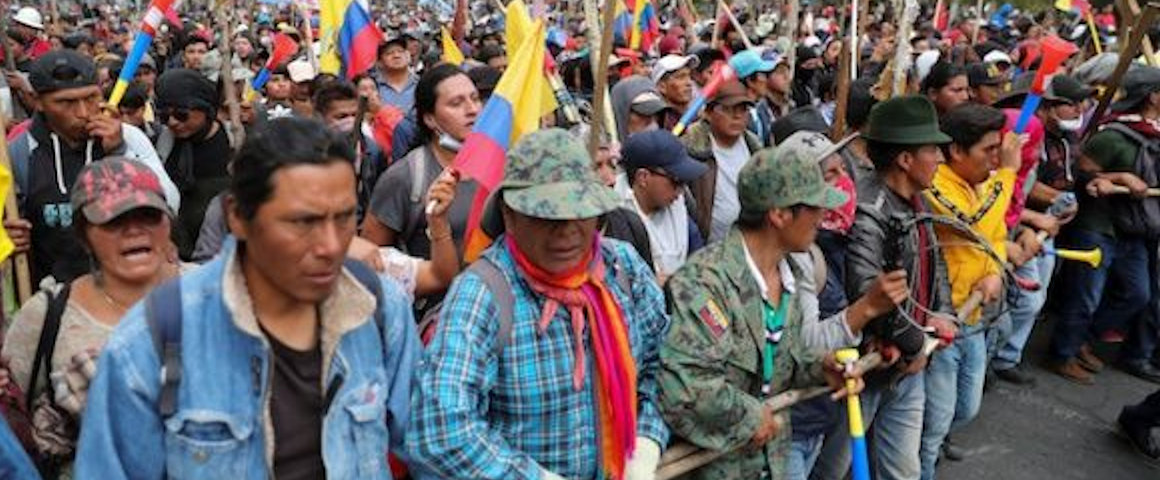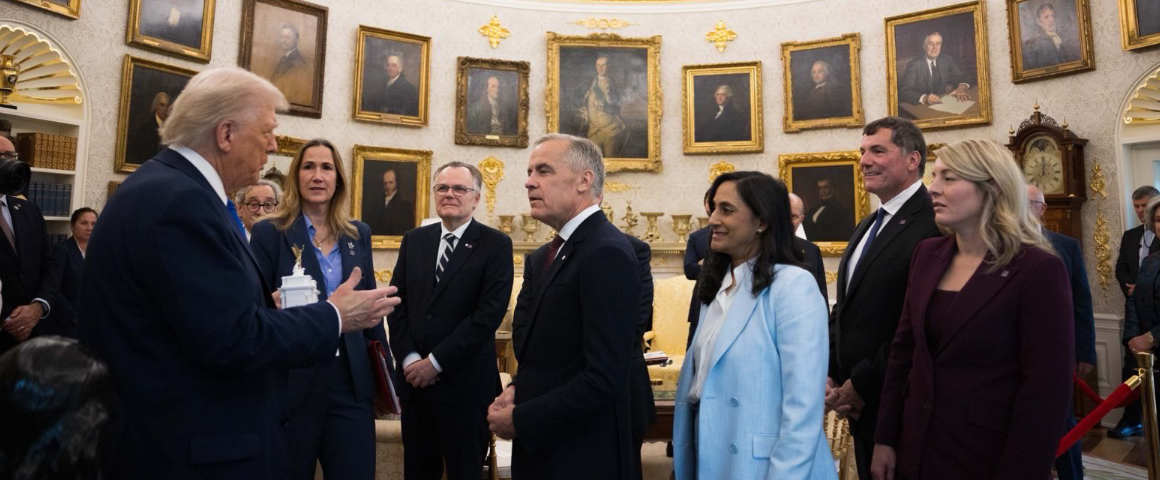After ten people were reported killed on the streets of Ecuador, together with about 2,000 people injured and a large number imprisoned, an agreement was reached between the Lenin Moreno government and protesters to derogate the controversial Decree 883 that had the footprint of the neoliberal austerity policies of the International Monetary Fund (IMF).
For the time being the “dialogue” that led to the derogation of the decree has defused an escalation of the general strike that was looming over the Moreno administration. But for how long?
It was only a matter of time before the situation in Ecuador reached the point of political tension experienced in the last few weeks. The people of Ecuador have organised massive protests against the economic policies taken by the Moreno government at the beginning of October, protests that were met by government-imposed military curfews and repression.
The tipping point was Decree 883, that forced a series of measures including removal of subsidies and price deregulation for gasoline and diesel fuels, which caused a price increase of between 20 percent to more than 100 percent. Other costs were also affected, including everything that relies on transportation, such as food. Additional aspects of the decree included eliminating import duties and laying off thousands of public employees. This was viewed as part of a set of austerity measures imposed on the country by the IMF, which Ecuadoreans refer to as “paquetazo” (big package). In exchange, the Moreno government was to receive more than $4 billion from the IMF, while exonerating corporations from paying a similar amount in overdue taxation.
The reaction was immediate and led by thousands of Indigenous people from all provinces of Ecuador, represented by the Confederación de Nacionalidades Indígenas del Ecuador, CONAIE (Confederation of Indigenous Nationalities of Ecuador) and other groups. This is important to emphasize, because there has been an obvious attempt to discredit this genuine movement by suggesting that former president Rafael Correa was behind it with the intention of triggering a coup. CONAIE made it a point to distance themselves from Correa.
Support for Moreno came promptly and directly from US Secretary of State Mike Pompeo and a group of former Latin American presidents who issued a declaration denouncing “foreign-induced acts of people’s violence.” They specifically named Venezuela’s “dictatorship” and its “ally”, Colombia’s guerrilla organizations. All this was an attempt to politicize a genuine popular reaction and, in so doing, defend the sole culprits, the Moreno administration plus the IMF.
Moreno won the presidential elections of 2017 for the centre-left PAIS Alliance Party. He was Correa’s vice president and was considered the natural choice for the continuation of what was mostly a progressive government with a considerable support from Ecuadoreans.
However, soon after he became president Moreno started showing signs of straying from the previous administration, which was seen by many as a betrayal of everything he was elected for. It is not clear if his was a planned deceit or if there were any contributing circumstances, including political pressure. But his quick turnaround showed an aggressive motive with accusations of corruption against former president Rafael Correa. He appointed several judges in the judiciary that would have ensured a prosecution. Consequently, Correa opted to leave the country and became an opposition voice against his former vice president. Moreno’s appointments would also guarantee that he could not be prosecuted, which was a concern since he had been part of the Correa administration for ten years. He soon established close ties with Washington that included purchases of military equipment and granting rights to US anti-drug overflights to land in the environmentally sensitive Galapagos Islands.
The deal reached October 13, between Moreno’s government and leaders of the Indigenous people, represented by CONAIE’s president Jaime Vargas, was mediated by the UN and the Catholic Church. Decree 883 was revoked and a commission including Indigenous representatives will write a new proposal to replace it. This was quite a change of position from the embattled Moreno of a few days prior, who had emphatically announced that he would not withdraw the decree. But the deepest moral divide was noted when Moreno shockingly stated in an interview, “With all respect for human life, I believe that the dignity of a state is much more than that.” The lack of sensitivity for Indigenous people’s dignity was not ignored by the protesters, who stated that the lost lives would rest on Moreno’s conscience.
Street celebrations followed the announcement of the deal, which was seen as a major victory not only for Indigenous people but for all Ecuadoreans. It was certainly a victory for peace. But this needs to be a cautious celebration. Has trust been restored? Can Ecuadoreans rely on a government that betrayed them since the elections of 2017?
Only time will tell.




